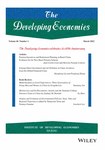
Redistributive Policy Shocks and Monetary Policy with Heterogeneous Agents
Working Paper No- 455
Abstract:-
Governments in EMDEs routinely intervene in agriculture markets to stabilize food prices in the wake of adverse shocks. Such interventions usually involve a large increase in the procurement and redistribution of food, which we call a redistributive policy shock. What is the impact of a redistributive policy shock on inflation and the distribution of consumption amongst rich and poor households? We build a tractable two-sector-two-agent NK DSGE model calibrated to the Indian economy. We show that for an inflation targeting central bank, consumer heterogeneity matters for whether monetary policy responses to a variety of shocks raises aggregate welfare or not.
Keywords TANK models, Inflation Targeting, Emerging Market and Developing
Economies, Procurement and Redistribution, DSGE.
JEL codes: E31, E32, E44, E52, E63.
Find on this page
Contact Us
Institute of Economic Growth, University Enclave, University of Delhi (North Campus),
Delhi 110 007, India
contact-us@iegindia.org
+91-11-27666364/6367, 27667101/7288/7365/7424
+91-11-27667410



